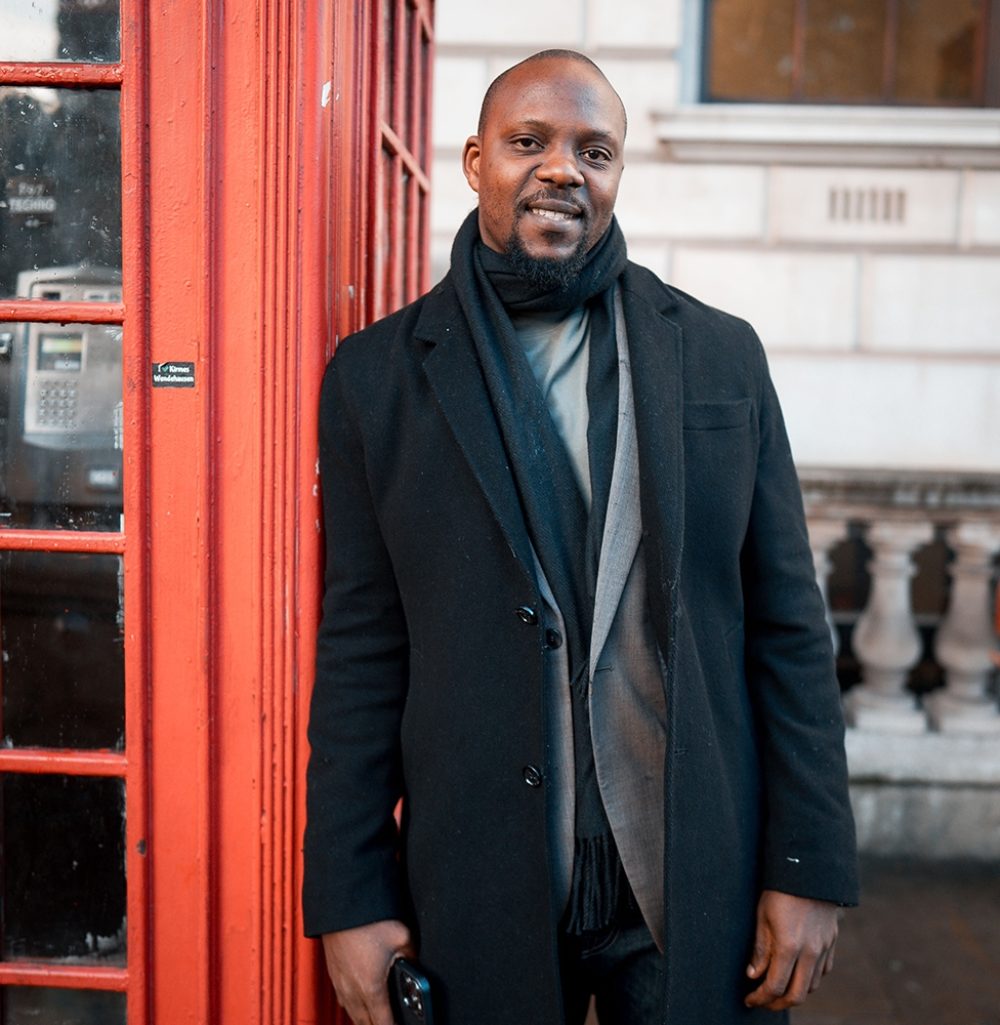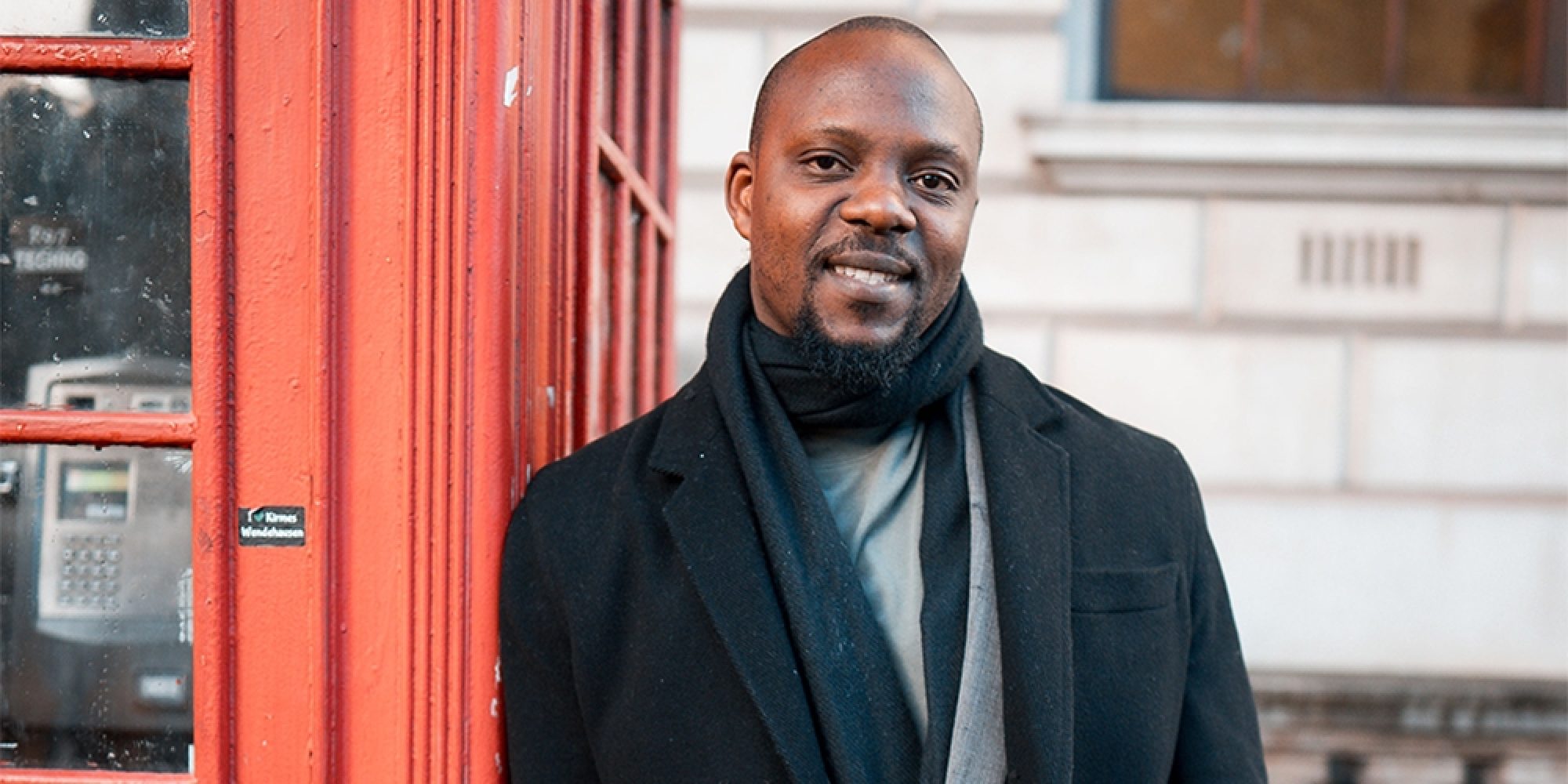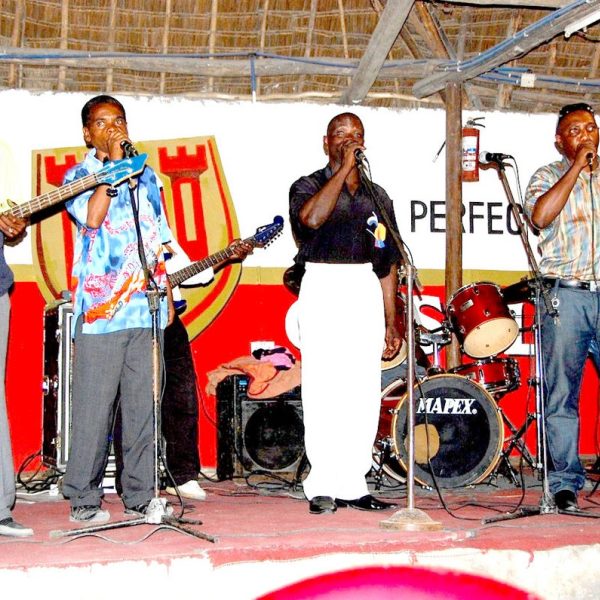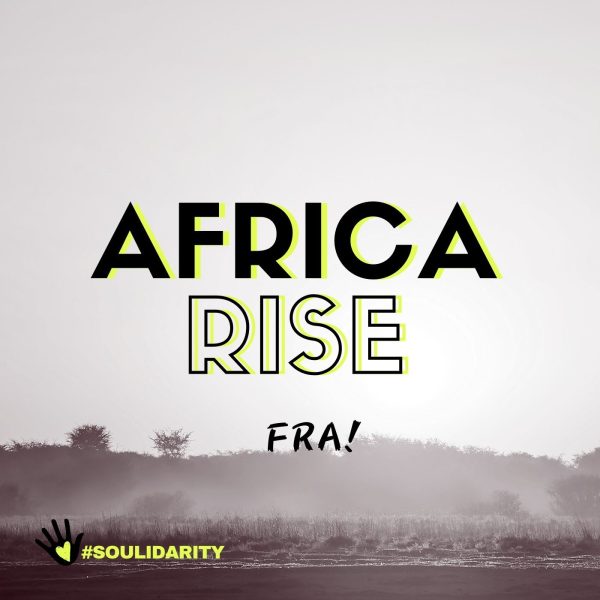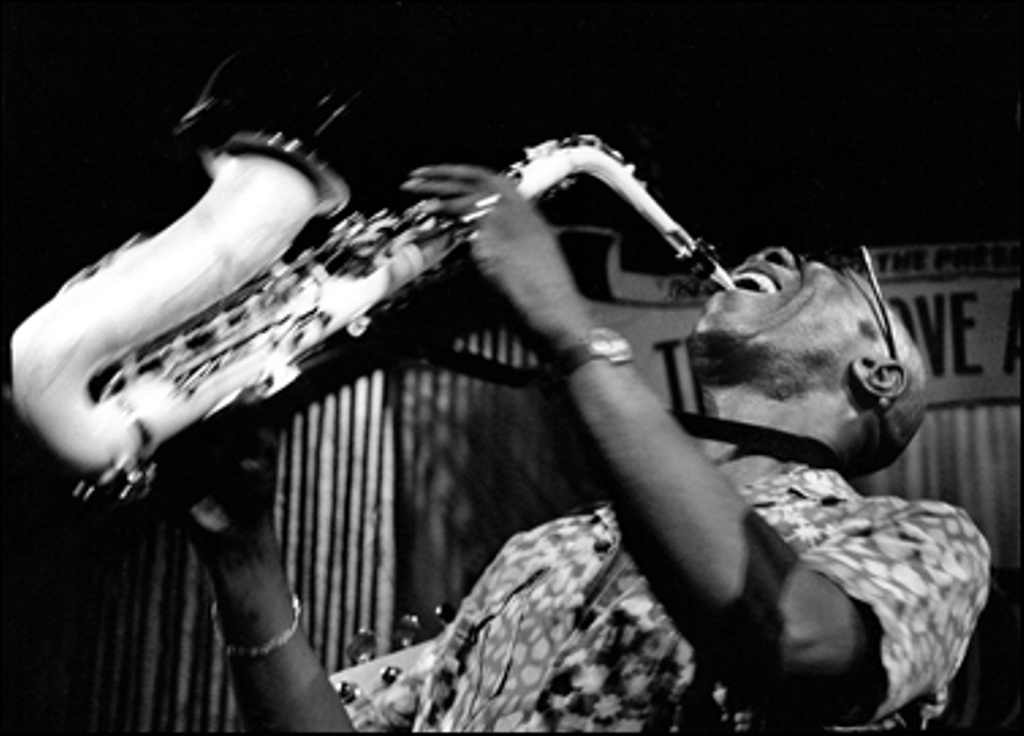Akinyemi Ayinoluwa is a Nigerian entertainment lawyer, recently named to Billboard’s 2025 Top Music Lawyers list. This honor recognizes him as one of the most influential legal figures shaping today’s music industry. Ayinoluwa’s firm, Lagos-based Hightower Solicitors, is widely regarded as Africa’s premier music law firm, with a client roster that includes some of Afrobeats’ most in-demand producers: Magicsticks (Asake, Tiwa Savage), Ragee (Davido, Adekunle Gold), Damie (BNXN, Fave), Rexxie (Burna Boy, Zlatan), Blaq Jerzee (Mr Eazi, Wizkid), Masterkraft (Justin Bieber, Yemi Alade), and Marvey Muzique (Ayra Starr, Qing Madi), among others.
Having started out as an artist and songwriter, Ayinoluwa brings a rare mix of artistic empathy, industry insight, and legal precision to his practice. In his 13-year legal career, he’s been a tireless advocate for better representation, compensatio, and visibility for behind-the-scenes creatives. He has helped artists to build sustainable music catalogs that generate long-term wealth. Hightower is currently expanding its reach into South Africa and Tanzania, shaping the future of African music law.
Afropop’s Banning Eyre spoke with Ayinoluwa over Zoom from Cape Town. Here’s their conversation, edited for length and clarity.
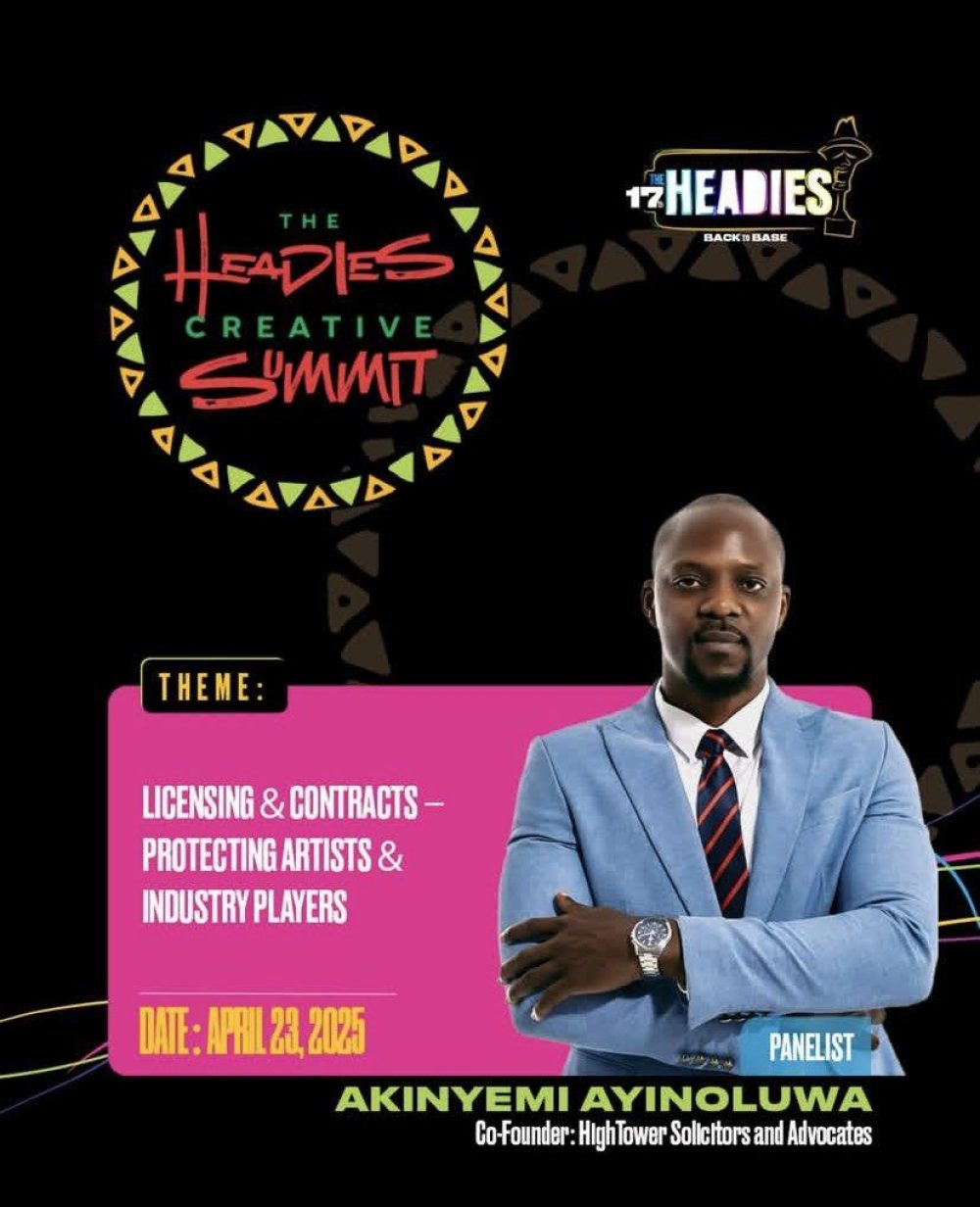
Akinyemi Ayinoluwa: Hello, sir!
Banning Eyre: It’s wonderful to speak with you. By way of introduction, Afropop Worldwide has been covering African popular music since 1988 on national radio here. So we've witnessed a lot of change. I'm interested in your work in securing rights, getting people paid, and bring more professionalism to the industry than we’ve seen over the years. To start, tell me a little of your story, and how you came to be where you are now.
Yeah, thank you so much for the opportunity. And I commend your company for the work you do, as well helping to document the world of music as much as possible.
Thank you for that.
So, myself, I started out as a youngster loving music and I found it as a channel for expression. The love was planted in me by my parents, my aunties, and I also went to a church where music was a very, very big part of the fellowship at my secondary school. I became fascinated with Nigerian music, but I also fell in love with the music of Michael Jackson and R. Kelly.
This is in Lagos.
This is Lagos. Those artists were a big influence in Nigerian music.
Sure.
So, when I got to university in 2004, I actively started making music, recording music. And that was everything I did all through my university days. That kind of kept me out of trouble. Aside from my education, music was the other thing I was committed to, and I was really invested in it. But sadly, I didn't make it to the big stage. I was studying law, because my dad was a lawyer. My dad is late now, but he kind of influenced my choice of profession. I came to the realization that, okay, if I didn't make it as a singer-songwriter and performer, maybe I could make it as a lawyer working in music. Maybe I could combine my love for music and also my discipline, which was becoming a lawyer.
In my third year as a law student, I discovered an article that profiled a very reputable music lawyer and entrepreneur, and that kind of opened my mind to the possibility. Reading that article suggested the idea that I could replicate the success of a Nigerian by the name of Yahaya Maikori, the founder of Chocolate City Records. I just thought that, “Well, I could also have something like that in the future. If I didn't make it as an artist, I could be a music lawyer, and have my own label.”
So immediately when I got to law school, I stopped music and just focused on my books. I wanted to qualify as a lawyer and, thankfully, I passed my exams and was immediately called to the Nigerian bar. There was what we called the Nigerian Youth Service where people serve the country for a year. So when I went into that program, I just said, “Well, let me try to find my way in Nigerian music.” I started as a talent manager and publicist. I was meeting people, becoming part of the community, and then at some point, my journey with the talent I was working with ended. That was on the third anniversary, and I was really, really depressed and disappointed.
What, what year are we up to now?
2013. I became a lawyer 2010. Now, this in my third year as a lawyer, and I was able to use all the relationships that I had built over the years over the past three years. Instead of trying to use those relationships to push a talent that I was managing, I thought, well, let me convert this and become the lawyer, helping other people with their legal affairs. That was the start of my journey, and it's been an amazing ride so far.
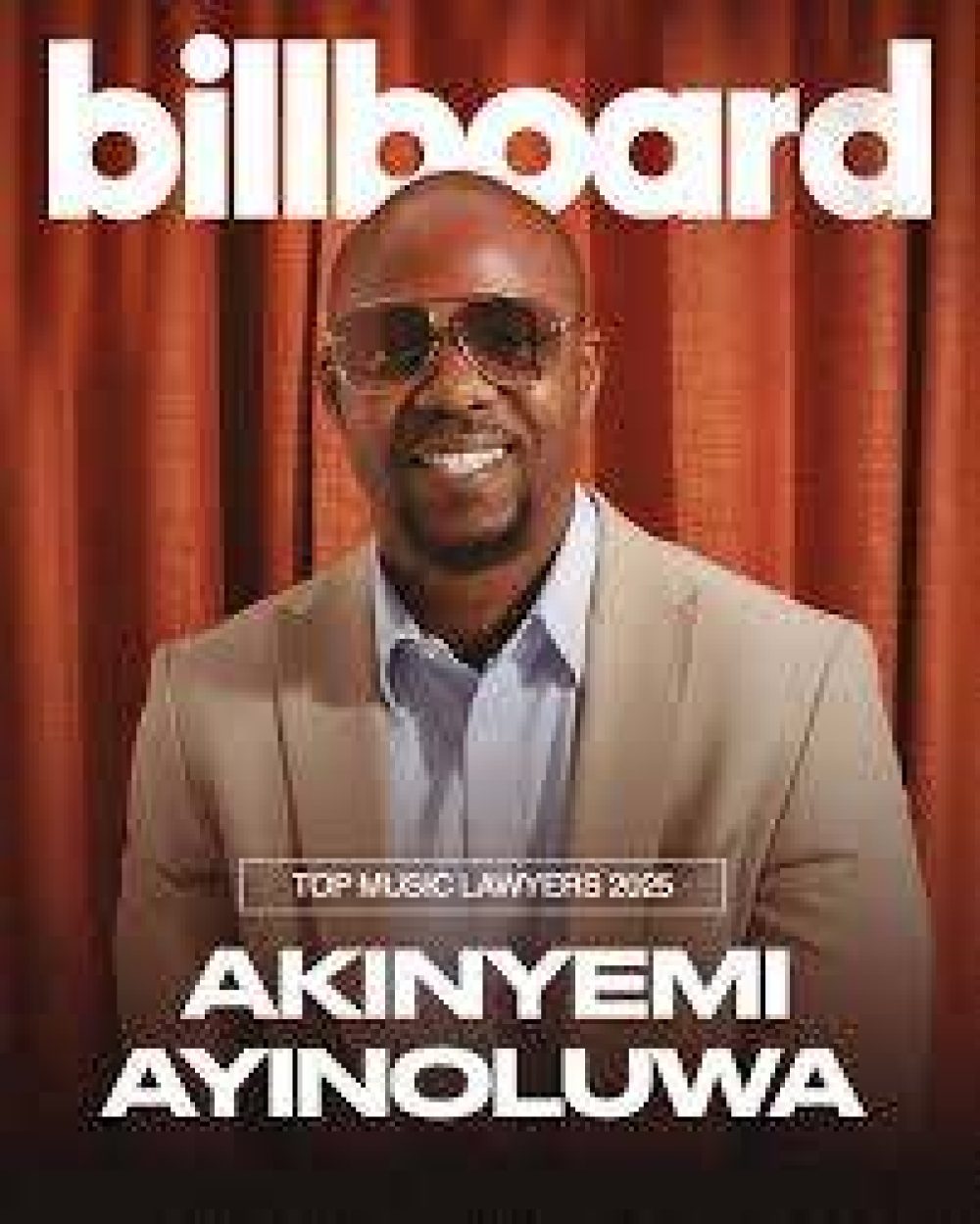
Before we go on, let me congratulate you on the Billboard recognition. That's very impressive.
Thank you so much.
And your roster of talent is also very impressive. I had a great interview with one of your artists, Mr. Eazi a couple of years ago. He’s a fascinating guy, combining business and music. But let's just go back. As I was saying, when we started this work in the 1980s, there was really no protection for artists. When King Sunny Ade and Fela first came here, they were successful, but the artists below them were really struggling. It didn't seem like there was any real infrastructure to support them, not just in Nigeria, but in so many African countries. What is your sense of what it was like then, and how it’s different now?
Well, at the time, the appreciation for being a singer-songwriter or recording artist in Nigeria, wasn't as glamorous as it is now. Some 30, 40 years ago, we already had a lot of famous, popular, rich recording artists and songwriters. But I don't think that most people found that choice of profession lofty enough. People wouldn't approve if their kids became musicians. But I think there's been a gradual shift over the years. And now a lot of people appreciate that there's money to be made. And Africans, or Nigerians, like money.
Fair enough.
Now, if a parent sees that somebody's son is making a living from making music, or somebody's son is becoming an important part of society, all from making music, it becomes more attractive. That informed my own decision as well, because if I cast my mind back to 20 or 25 years ago, the wealth that could be generated in music has became more evident. A lot of people in my generation started seeing things in a different light. Musicians were able to live comfortably and build a name for themselves, and also take care of their families. That started appealing to people like me.
But of course, we were also finding many, many problems. This thing looks appealing from a distance, but when we come closer, we see that record labels are always getting into disputes with their talents. Sometimes the thousands and thousands of dollars that are invested in a talent go to waste as a result of these disputes that were always happening. We found that a lot of people were not signing contracts, not getting the legal support they needed to be able to make informed decisions and protect their interests.
Twenty or 30 years ago, there were not too many lawyers interested in this area of law. With my generation, that changed. I became a lawyer 16 years ago. We found there was a gap to fill, and maybe we could help build this thing out. At the time when I qualified, they were maybe five intellectual property lawyers servicing the whole country—that is, lawyers who understood the entertainment business. That was when I knew I would have a lot of opportunity in this space. The most pivotal moment for me was in 2012, when there was a Nigerian record that was very, very big. It actually landed on the charts in the U.K..
What was the song?
“Oliver Twist” by D’Banj.
Right, of course. D’Banj was a breakthrough artist.
Yeah. So the song became very big. And that was what I needed to convince my dad that, “Hey, I'm going to be an entertainment lawyer, and I'm happy.” Then he allowed it. But in 2012, the Nigerian music industry was riddled by a lot of disputes. Many times, transactions were conducted without any contract in place. Producers and songwriters were not being credited for their work. There was nothing like a publishing split. Also, the collection society at the time, whose role it is to collect royalties on behalf of its members, was not operating at an efficient capacity. So there were so many, many things wrong.
But I'm so happy that some of our seniors went on an education and advocacy drive, bringing a lot of international experts from South Africa, from America, from the U.K., to come and teach practitioners and professionals in the music industry. I am a very big beneficiary of the educational and advocacy drive by people like Obi Asika.
As we've watched the emergence of Afrobeats writ large, and also Nollywood, one of the narratives we’ve heard is that a lot of talent in Nigeria had left during the Sani Abacha years, during the military regime years. After that ended, many came back with technical skills, training and gear. And so suddenly, you had much better studios, sound engineers and other professionals.
On the heels of that, there was the emergence of satellite television channels broadcasting concerts and video competitions. Now, you weren't just dealing with the Nigerian market. You were talking to Kenya, Tanzania, South Africa, Ghana and, of course, the diaspora. The whole Anglo-African world became one huge market, and there was serious money to be made.
How many times have I heard the story of a musician whose parents tried to stop them from becoming a musician? I am sure that still happens. But, as you say, it's a different world today. In Nigeria, you have this whole class of incredibly successful musicians to serve as role models for future generations. Does that narrative sound right to you?
Well, I believe that in the ‘70s and ‘80s, when music companies were present in Nigeria were promoting the likes of Fela and Sunny Ade, they were frustrated when the Nigerian economy experienced a downturn. When Nigeria was under the grip of the military junta, so many of them had to leave, and then it felt as though not much was going on in the local scene.
Then, as you say, some years later, there was a constant flow of Nigerians going out, coming in, going out, coming in. And just like in any country that has a large diaspora population, people come back with business ideas and technical expertise. Nigerian music experienced that, because those who fled in the ‘70s or ‘80s came back in the late ‘90s and early 2000s, and they brought their expertise into Nigerian music. And then there was the explosion of satellite TV and digital broadcast. All of this came together to amplify Nigerian creativity to the point that it became a dominant power in sub-Saharan Africa. Until today, Nigerian music and film are still the most consumed commodities of African entertainment on the Continent. And this has had a huge impact on how the music has been exported beyond our borders.
That’s it. Back in the day, when the industry was still local and artists lived from live shows and, hopefully, sales of albums, the big problem we heard about, and not just in Nigeria, was piracy. It was hard for artists to make money from recordings, because it was so easy to pirate CDs and cassettes. I’ve always had this idea that this situation prepared African markets better for the coming of downloads and YouTube. Because artists weren't really that reliant on physical sales, the transition was easier than in places where artists earned real income from sales.
With the rise of the Afrobeats generation, it seemed as though musicians was happy to just put stuff out there for free. Basically, the whole business model had changed. So I'm curious. How you would describe the new model? I mean, there are the satellite channels, and artists can play big shows and win corporate sponsorships from cell phone companies, cigarette companies and so on. All that is new, right?
Well, in 2012, that was the era of platforms like Limewire and Napster. People could just stream music, illegitimately. People could download movies and music onto their laptops. And in Nigeria at the time, we were in the blog-driven era of music distribution, where people were starting to download music from blogs. Streaming legitimately wasn't the norm yet, or if it was the norm, it wasn't embraced yet in Nigeria. We were still a very CD-dependent territory. Up to then, everything was physical.
Sure.
There's a place called Alaba in Lagos where a lot of talents used to go. This was the pirate capital of African music, and artists would go to give them their master tapes. They gave the music to the pirates, and the pirates paid them. Then the pirates mass-produced copies from Alaba.
Why did artists do that?
They wanted to be popular, because if you're popular on the streets, radio would embrace you. And then, when the song starts to do well on radio, that is an indicator that you are doing something well, and then Nigerians start to come to your shows. Then the show promoters connect you to people who might need your services as a musician, maybe at the clubs or other venues. They would start to book you. So that was usually the model. You're going to make the music, and then you take the master copy to go to the pirate capital called Alaba. Sometimes they would pay you. Or sometimes you would pay them to mass-produce your master tape. And then they had a system for distribution all over Africa.
So the pirates were basically doing what a record company would normally do. But since the companies weren't doing it, the artists went directly to the pirates and made deals with them.
Exactly. No record label in Nigeria before 2012 had the resources to distribute properly. The record labels even had to partner up with these pirate companies, because most of these pirate companies now started legitimizing their business. They had the distribution networks spread across sub-Saharan Africa. They were mocking as proper distribution companies, but they started out as pirates.
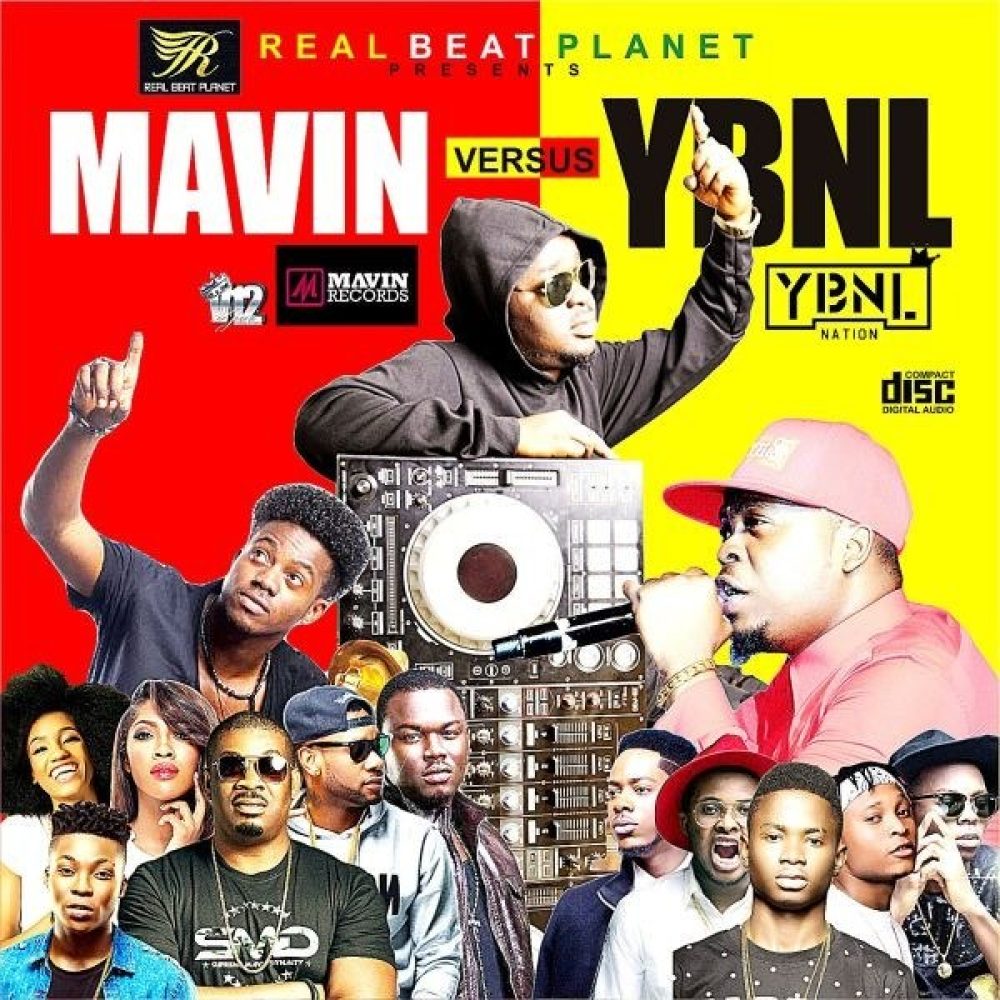
Well, this leads into the story of YBNL, Yahoo Boy No Laptop, right? [This is the phenomenon of internet scammers putting money into music careers. Hence the name of Olamide’s record company, YBNL Nation.]
(laughs) Yeah. So then, the technology of streaming came, and I believe streaming changed the game, because now we had legitimate platforms. I think it was a Mauritius company that started the idea of streaming in Nigeria.
We were last in Nigeria in 2017. That was a while ago now, but artists were making some money from streaming. We were in Tanzania just last year and asking the same questions and it seemed like streaming is a source of income for artists, but not the main one. How important is streaming income to Nigerian artists now?
I think it's very, very important. Africa started embracing streaming as a legitimate channel for the consumption of music. Many of the people I represent now have income, and this is one of the sources of that income, although streaming takes a back seat to live performance fees, especially for the big talents. The A-list and B-list talents make more money from live performances or touring. So for most of them, streaming is a second source. But for music producers, that is still a very big source of income.
What about corporate sponsorships? How important are they?
Yes, that is still the major backbone for a lot of the live performance you find on the continent, from South Africa to Kenya, to Ghana, to Nigeria, to Tanzania. A lot of the biggest shows by promoters are subsidized through brand partnerships and sponsorships by maybe the beverage companies in these countries, or the telecommunication companies. That is still how a lot of A-list and B-list artists make their money.
A big sponsorship is the Holy Grail…if you can get it. We have a reporter in Lagos for our podcast. This is Fay Fay, and she's been doing a series called Breaking into Afrobeats, telling stories about how people get from nowhere into the profession. The artists she’s been telling us about do not have corporate sponsorships. They're not on the A-list or the B-list, and there seems to be a narrative of what we call “fake it till you make it,” where you need to present yourself as successful, dressing well and projecting confidence from the start, in hopes of getting ahead. What's your sense of how hard it is for someone who starts with nothing but raw talent?
Well, I think it's not easy in 2025 anywhere in the world, because there's a lot of noise. Whether you're an upcoming or emerging talent in Nigeria, or Africa, I think it’s the same experience as with a talent just starting out in America. You are going to fight for attention. You're going to fight for people to care that you exist. You are going to fight so that people can believe in your message and support it.
I think the best place to start is to have something to trade with. It’s like in any trade, even me, trying to be a lawyer. I had to learn many things by myself. I had to stay driven. Nobody was going to drop opportunities on my lap. But I had something to trade with. I had develped my skills as a lawyer. I had to become a friend to the community of creatives, and those were the things that I could trade with. Those were my leverage points. So everybody needs to have something to trade with. It could be that you're an excellent songwriter, or an excellent vocalist or an excellent performing artist. That is a good place to start.
You have a skill to trade with, and if you're good enough, slowly, slowly, people are gonna come behind you and start to push you and support you. Then, if you make enough progress, you're going to attract more people who want to see you progress, and then you're going to attract funding from an investor, or you're going to catch the attention of a label or a music publisher who is also going to want to help you succeed. Of course, they know that if they help you succeed, they will also participate in the spoils of war. If we help you win your battles, we'll also get a share from the spoils of war, and we can be in business together.
That's good. I guess you lived a version of this story yourself. How did it start? Who was your first big client?
My first big client would be a producer named Mastercraft. Working with him opened my eyes to the idea of being a solution provider for music producers in Nigeria. I understood that there was nobody championing record producers in Nigeria, and I just decided, “Okay, I'll be the lawyer to take care of that whole section of the music industry.” That was a very strategic decision I made, because that made me know a lot of the powerful guys making the music, and I was able to cement my place. Till now, I represent the biggest record producers in Nigerian music.
It’s an amazing list. So once you had success with Mastercraft, then all these guys took you seriously.
I had a representative. Yes.
Wonderful. That must have been very exciting. But I'm sure you had your struggles. Can you think of an example where you had to wrestle with the old ways or bringing about new ways to really make a difference. You have lived through an incredible period of change. Tell me a story about the challenges you faced.
At the time when we started championing record producers, we ran into a lot of resistance from the establishment of the time, because, like I said, people were doing transactions without contracts. A lot of records that were out there, there was not chain of title. We didn't know who the producers were. The producers were not getting paid. There were no publishing splits. So when we came with a new way of doing things, we met a lot of resistance. I still suffer from the aggressive push back from what we did as far back as 10 or 12 years ago. Some people have still not forgiven me for that, and I'm happy.
Yeah, I'm happy. We've been able to change the tide now. If you ask an average Nigerian record producer, maybe a 23-year-old producer, they would not do business with you unless you sign a split sheet, and you have a signed contract. So the battles we fought! But after many years, these are the results. People are more aware; the information is more present; and just in the last 5, 6, 7 years, we've seen how people are building valuable music catalogs that have chains of title. All that came from the work myself and some of my colleagues did as far back as 12 or 13 years ago.
But you say you faced real opposition.
Yes. Senior talent managers of the time, and the A-list artists, were threatening me, making calls, saying they will shut me down. But I'm happy we didn't listen to them, and we've been able to change the way producers are dealt with, and the way songwriters are appreciated in Nigerian music.
That’s interesting. I remember back in the day hearing the complaint that there were no real producers in Africa. And, as we know, so much of what's made the sound of these Afrobeats stars so popular and effective worldwide is the excellence of the production. I guess I’m seeing the changes also when I look at a new video on YouTube, and there’s a long list of people featured on the track. There’s recognition of all the players, as opposed to just the star.
Yes. It takes a village to make a great record, and everybody who has been instrumental in helping to build the record deserve some form of credit, because most of the time, the credits will get you more work. It is good that the Nigerian music industry has evolved to the point where sound engineers are being recognized. The A&R people are being recognized, the producers are being recognized, and the songwriters are also being recognized as opposed to what it was many years ago, when the artists in front of the camera were the only ones credited for the work done.
Let’s talk about record labels. Nigeria has serious record labels like Maven now. Do you feel like they're functioning the way a record label should?
Yes. I believe Maven is the best-run African Record Company, certainly in Nigeria. There is never a shortage of talent. There will always be talented young people. What we do not have enough of is infrastructure that allows for development of talent, like what you had in the Motown days where people came in very fresh, and then you had an assembly line production for development of talent. There was infrastructure for funding that development. So we can see that Maven has a proper infrastructure. In the last five years, they've been able to introduce two internationally known superstars because of their corporate governance.
Ayra Starr…
…and Rema. And now, we've been able to attract the attention of Universal Music. Universal is now part-owner of Maven Records. So they come with more resources. And that places Maven in a very fancy position in African music, where they are not in short supply of funding or technical know-how. They are right in the middle of everything in Lagos.

That’s fantastic. So now, in 2025, we're still in the midst of this process of enormous change. Where do you see things going? What are you focusing on now in terms of making things even better as we move on in this crazy century?
Well, technology is going to be more present. Everyone is panicky over the role of AI, and I think it's an important subject. It keeps me awake as at night, as well. I'm trying to figure out how I can master this tool. Because I believe the tools will usher in new opportunities, and the tools will also destroy a lot of businesses. Technology comes and revolutionizes. It helps some people, and it takes away opportunities from some people. The world of machine learning and artificial intelligence is here, and everybody has to see how it affects their business.
That aside, I'm very passionate about songwriting across the continent, and I'm working to amplify the importance of songwriting. I'm currently in Cape Town, and I've been traveling from Tanzania to Joburg to Cape Town for the past three weeks, connecting with my prospective partners in these territories, to be able to do more work for African songwriting. So that's something I'm really, really passionate about, a nice tiger to ride.
Cool. As I mentioned, we've been doing our journalism work for almost 40 years, and we've also dealt with a lot of change in our media landscape. We recently lost longstanding government support because our President is not particularly tuned into culture, let alone African culture. But we’re adapting. We're now moving to a different kind of model where we're focusing on supporting the careers of artists who are brave enough to seek international careers. We’re ramping up our social media efforts to trace the journeys of artists who want to work in the American market, whether it's through videos, films, record releases and, especially, tours.
Our mission is the same: to support the growing awareness and presence of African music here in the U.S. and worldwide. I feel like we have a special role because we have an enormous media archive of interviews and recordings going back all those years. We see ourselves as preservers of history. We want young people who are discovering this music to have access to stories about what came before.
Yeah. That’s great.
Anyway, it’s really a pleasure and honor to speak with you. I hope we can stay in touch as we move forward in our endeavors.
Definitely. By the way, I know your correspondent, Fay Fay.
Oh great. She’s doing terrific work for us. Greet her for me if you see her. And good luck down there in Cape Town.
Thank you.
